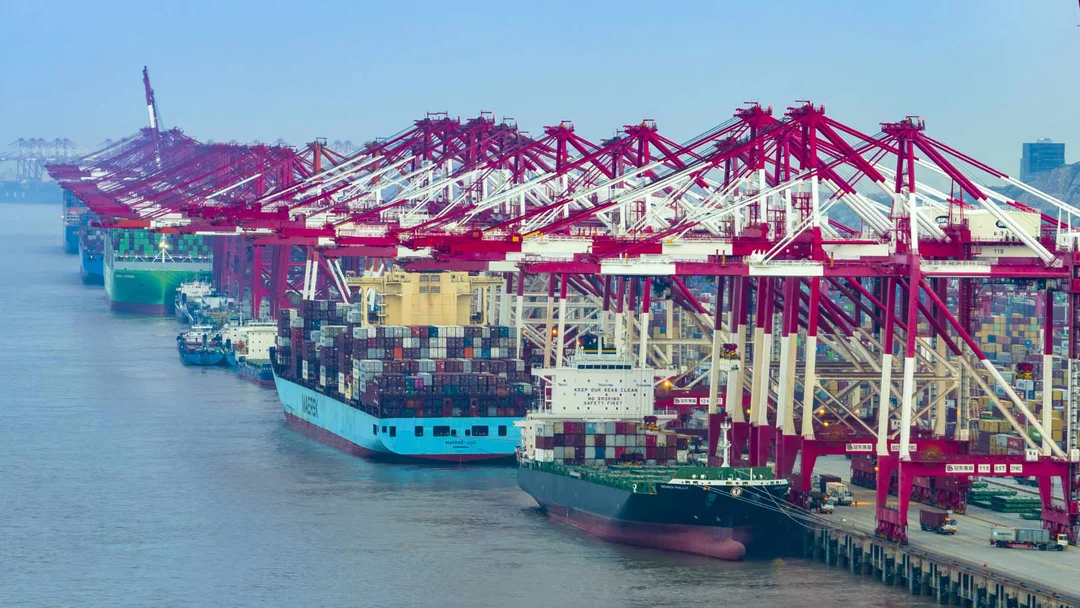
Are Small Businesses on the Brink? The Hidden Costs of Tariffs
The escalating trade war initiated by the Trump administration has left many American small businesses reeling. Under the burden of new tariffs, these businesses must navigate a complex environment that threatens their very existence. The question arises: how are these tariffs impacting the small enterprises that form the backbone of the U.S. economy?
As the tariffs on Chinese imports soar to unprecedented levels, small business owners like Katharine Burke, founder of Purryfuls, face staggering challenges. Burke's self-care products are produced in China, and she recalls the shock when tariffs jumped from 0% to 145% almost overnight. "It’s not possible for a business to adjust that quickly, particularly a small business like me," Burke lamented.

Another business impacted is Busy Baby, led by Beth Fynbo Benike, who had plans for a growth spurt in 2025 with new deals with Walmart and Target. However, the hefty $230,000 tariff on her latest shipment threatens to derail her ambitions. "I’m going to lose my house. My boys are not going to have a place to live," she voiced her despair, highlighting the personal stakes involved.
Economists point out that the sharp rise in tariffs has economic implications beyond just increased prices; it could lead to a recession. Gus Faucher of PNC Financial Services notes that small businesses typically lack the financial flexibility to absorb such costs, making them more susceptible to economic downturns than their larger counterparts. "Small businesses are more vulnerable, and their cutbacks could significantly impact economic growth," he warned.
The challenges are compounded for small businesses that rely on imported goods. Retailers like Marc Bowker, owner of Alter Ego Comics, find suppliers charging up to 34% more due to tariffs. Bowker stated, "If you see prices go up at your local small business, it's not because we want to; it's because we're forced to." This reflects a growing sentiment among small business owners who feel squeezed between rising costs and stagnant sales.

In the face of such adversity, small businesses are forced to explore various strategies: adjusting prices, negotiating with suppliers, or even downsizing their workforce. Owner Kelsey O’Callaghan of Dorai Home spoke of painful staff reductions, saying, "As a founder, this is tough... we see how hard people work, but we also risk burnout as others absorb roles." Amid the confusion and uncertainty, some businesses have also resorted to legal avenues to alleviate their burdens. For instance, Victor Schwartz of VOS Selections, a small wine importing company, has taken a stand in court against what he views as unconstitutional tariff policies. These tales of struggle underscore the deep impacts tariffs inflict on small businesses and, by extension, the American economy at large. As prospects for relief remain murky, many business owners and advocates call for more robust governmental support and realistic pathways for a return to stability.
What are your thoughts on how tariffs are affecting small businesses? Share your experiences or concerns in the comments below. Can we find a way to support local enterprises amid these turbulent times?
Related issues news
What are China's tariffs on US goods?
After imposing 125% tariff on American goods on 12 April, 2025, China said that if the United States imposes further tariffs on Chinese products, it will ignore them, because it has already become impossible for the Chinese market to accept U.S. imports at the current tariff levels.
How much are tariffs?
Tariff rates range from 0 to 99 percent. The unweighted average across deficit countries is 50 percent, and the unweighted average across the entire globe is 20 percent. Weighted by imports, the average across deficit countries is 45 percent, and the average across the entire globe is 41 percent.